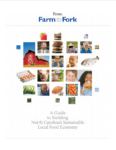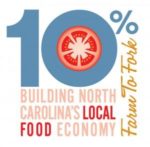Showing 1-2 of 2 results

Farm to Fork in North Carolina
This guide provides key action ideas for building a sustainable food economy in North Carolina.

What Can Be: Regional Food Systems
This video outlines the economic redevelopment project of Working Landscapes in Warrenton, North Carolina, telling the story of two rural leaders who moved home to Warren County to contribute to their local economy by building a small processing center.